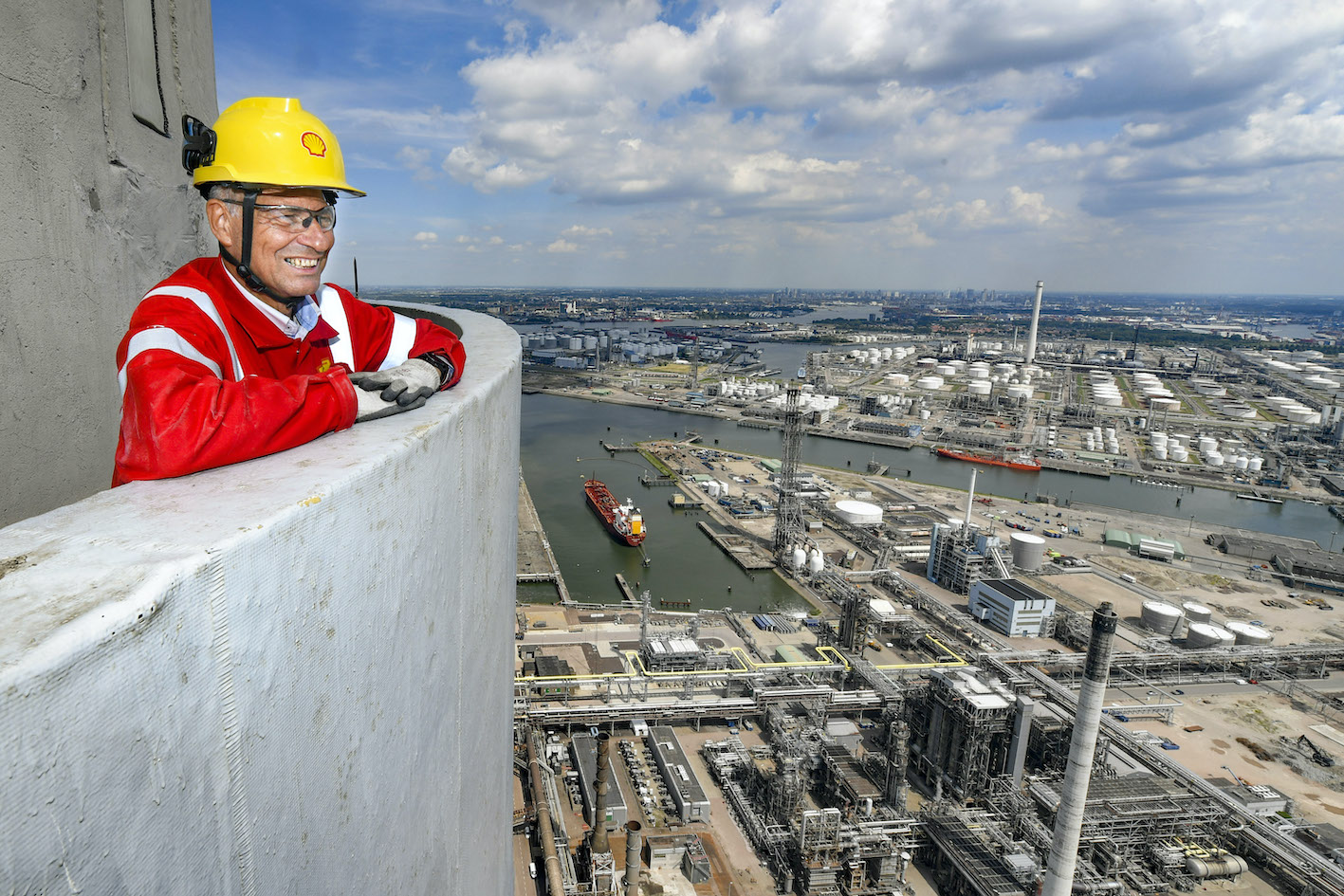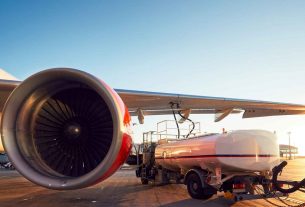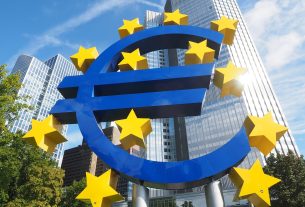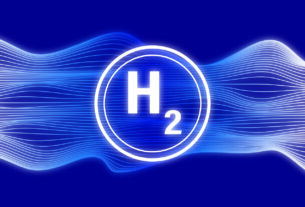The Netherlands – Many new investments are made at Shell Energy and Chemicals Park Rotterdam. These include installations for biofuels to green hydrogen. Site director Jos van Winsen: ‘We are at a level of investment here that we haven’t seen in over twenty-five years.’
Whereas in the past the group sometimes had to get used to a different future, Shell now seems to be firmly embracing the transition to sustainable chains. Van Winsen: ‘Petroleum products will become increasingly less important in the coming decades. Especially when it comes to fuels. Energy for passenger transport will soon be stored mainly in batteries, and for freight transport it might be a mixture.’ For aircraft, however, batteries soon seem too heavy. Aviation fuel will remain liquid for a long time to come,’ he says.
Focus
With the construction of a biofuels plant in Rotterdam, Shell is responding to the need to make aviation more sustainable as well. At the end of the summer of 2021 the company took the final investment decision. The capacity of the plant will be 820,000 tons per year. After construction, the plant will be one of the largest in Europe for the production of sustainable aviation fuel and renewable diesel from waste. Investment is estimated at over one billion euros.
Shell is also involved in this area with waste-to-jet fuel, a joint initiative with Canada’s Enerkem. At first, that project focused on chemicals from waste. When the focus shifted to jet fuel, there was enough reason for Shell to join the initiative. Van Winsen: ‘Unlike the biofuel plant, no investment decision has been made here yet. We are still in a phase before that.’
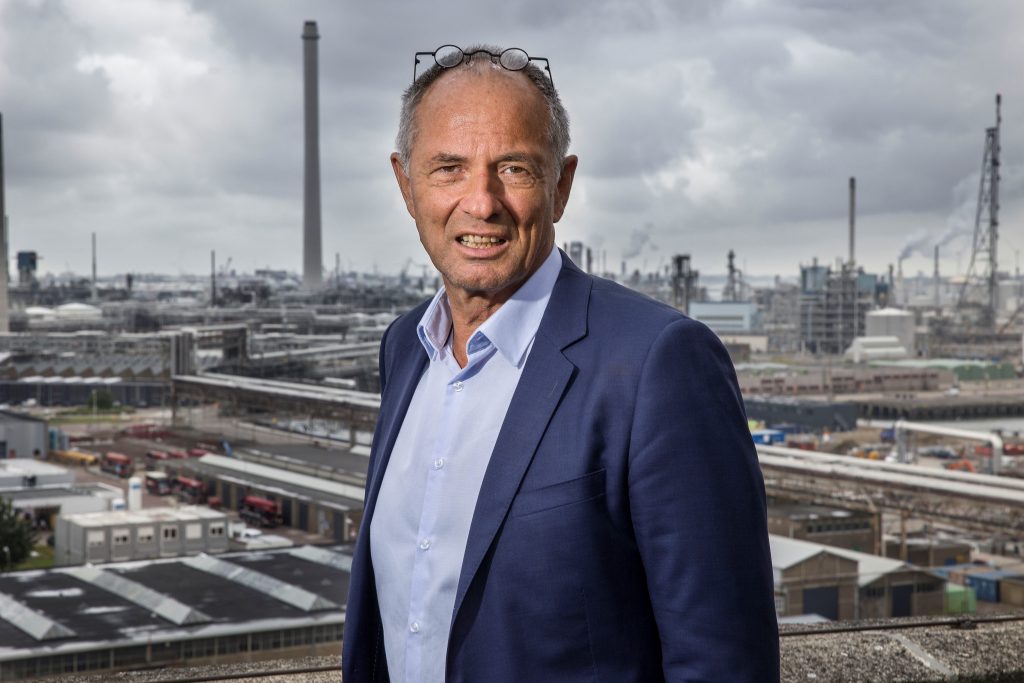
Jos van Winsen: ‘The importance of regional industrial presence will grow.’
When it comes to the transformation of the Rotterdam Shell site, two other projects are more concrete. Porthos, the joint Rotterdam project for large-scale capture and storage of CO2, and the construction of a green hydrogen plant on the Second Maasvlakte with a capacity of 200 megawatts.
The investment decision for this electrolysis plant has yet to be officially made But that can’t take long anymore. The first construction works are planned for this spring. Holland Hydrogen I’ is expected to start producing hydrogen in 2024.
At the beginning of this year, the main technology supplier was already announced. Thyssenkrupp will design and build the 200 megawatt plant. For this purpose, the German technology giant will supply electrolysis modules of 20 megawatts. And recently, preparations began for a hydrogen transport pipeline in Rotterdam. The hydrogen pipeline between Pernis and the Maasvlakte will be 32 kilometers long and must be completed by the end of 2024, beginning of 2025.
Delta Corridor
More than ever, infrastructure will be important. The plans for the construction of the so-called Delta Corridor are interesting in this light. This is intended to connect Rotterdam, Chemelot and the Ruhr area to each other for the transport of hydrogen and CO2, among other things. Logically, hydrogen will then head east and CO2 towards the North Sea. Domestic sites in particular could benefit from this, including the Shell plants in Rheinland. Until the Corridor is built, the possibility of storing CO2 offshore is reserved mainly for industrial complexes on the sea. Moreover, the production of green hydrogen using offshore wind energy is much more likely to take place close to the coast. There would be no need for huge reinforcements of the electricity grid. With the advent of the Delta Corridor, zero-emission hydrogen will also become more available to domestic clusters. The possibilities of CO2 removal and hydrogen supply will give domestic sites the same opportunities as coastal industries in that respect.
Scale
And there’s more at play. Now the vast majority of raw materials come from overseas. In particular, oil comes from far away in the wind. Circular raw materials, on which Shell wants to focus, on the other hand mainly come from the markets themselves. Often inland, and often from the other side. Van Winsen also expects that flows will change in the future. And that the disadvantages of domestic industrial clusters will diminish as a result of infrastructure, is also his observation. Nevertheless, he expects that Shell will still have advantages in Pernis. Everything here is also large-scale. Scale will also have advantages in the future. Rotterdam will remain an important logistics hub.’
Chips
In any case, it is bustling again at Shell’s Rotterdam location. There is an élan that has not been there in this form for decades. ‘We’re at an investment level here that we haven’t seen for more than twenty-five years.’ He also expects that the two crises, and certainly the war in Ukraine, will accelerate rather than slow the transformation. Not only will the need to move even faster away from fossil fuels and raw materials grow. ‘The importance of regional industrial presence will also grow. You can see this, for example, in the scarcity of chips on the market. This is why the EU is now pushing for the European production of chips.’

